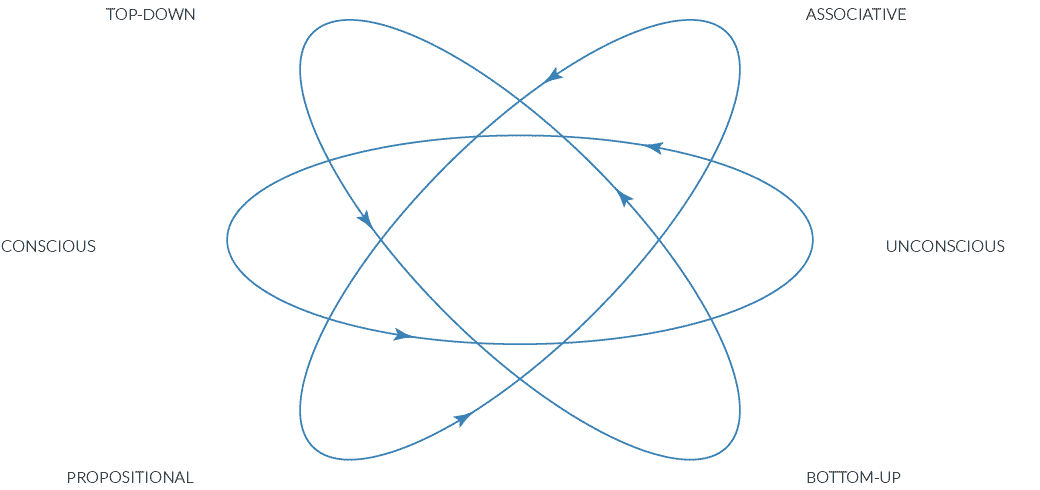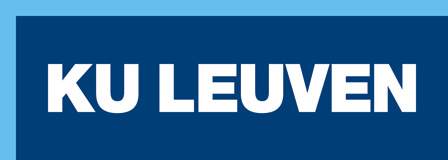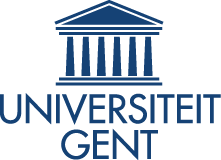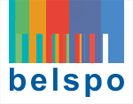COOL is a BELSPO Research Network funded under the “Interuniversity Poles of Attraction” Program (Grant P7/33). Titled “Mechanisms of conscious and unconscious learning and coordinated by Axel Cleeremans, it assembles teams from the ULB, KUL, UCL, and UG. The network is further enriched by the active collaboration of two foreign partners — Zoltan Dienes from the University of Sussex (U.K.) and Patrick Haggard from University College London (U.K.). The project was initiated in 2012 and will be funded through 2017.
Scientifically, the overarching goal of COOL is to contribute to our understanding of the mechanisms of conscious and unconscious learning.
Learning, that is, the ability to respond adaptively to changing circumstances is a fundamental ability for any organism. Thanks to recent advances in imaging methods, it has now become clear that the brain is a fundamentally plastic organ, the functional architecture of which is continuously modified through experience. From this perspective, one could thus argue that learning is a mandatory consequence of information processing: We learn all the time, whether we intend to or not. Learning takes many different forms. For instance, contrast learning the fact that Steve Jobs has just passed away with learning how to perform the complex movements involved in dancing the flamenco. Consider the differences between learning how to solve an arithmetic problem with learning a second language. Contrast a baby learning how to walk with an adult learning to play tennis, or a rat learning to avoid an electric shock with a human learning about the Hundred-years War.
Learning is a vast domain that remains unproductively segregated into distinct subfields that entertain little communication with each other. For instance, research on implicit learning — the process whereby one learns without intending to do so and without awareness that one has learned, has so far made little contact with research on high-level, conscious learning such as involved in causal reasoning or in problem solving. Likewise, research dedicated to understand the basic mechanisms of learning in animals such as rodents remains almost completely disconnected from research dedicated to understanding basic mechanisms of learning in humans. COOL will strive to integrate these different traditions.
Further, learning, as a research domain, remains very controversial. At least three such continuing controversies can be identified. The first concerns whether learning depends on associative mechanisms, on effortful, intentional, propositional-like reasoning processes or on a combination of both. Experimentally, recent, controversial evidence has indicated that even animals such as rats can exhibit inferential processing, thus questioning one of the fundamental tenets of associative theories. Conceptually, some theories in the domain assume that all learning is based on associative learning (e.g., connectionism), others assume that all learning is based on the manipulation of propositional symbol structures, and yet others assume that the two kinds of processes operate jointly or that they compete with each other. The second controversial issue is the role that awareness plays in learning, and in particular, the extent and limits of what can be learnt without awareness. The third controversial issue concerns the respective role of top-down and bottom-up learning mechanisms and the nature of their interactions (i.e., are phenomena such as conditioning penetrable to instructions?) Crucially, the poles of these different distinctions are often cast as correlated. Thus, we have one system that learns associations, automatically, in the absence of awareness, and that involves mostly bottom-up processes. The second system, by contrast, learns through hypothesis testing and inference, results in propositional representations that are available to consciousness, and involves top-down mechanisms.
Here, we propose to fundamentally reconsider the distinction. Instead of assuming that associative learning is always unconscious, automatic and bottom-up and that cognitive learning is always conscious, effortful and top- down, we propose instead that mechanisms of change operate continuously, at all levels of the cognitive hierarchy as well as over different times scales (i.e., over the time course of a single trial, over learning, and over development). From this perspective, the brain is continuously and unconsciously learning to anticipate the consequences of action or activity on itself, on the world, and on other people. There is considerable evidence for such predictive mechanisms in the human brain. This idea, in fact, forms the core of the Bayesian perspective on information processing and is at the heart of Friston’s free energy principle, according to which the brain continuously attempts to minimize “surprise” or conflict by anticipating its own future activity based on learned priors.
To address these issues, COOL is organized in 9 interacting Work Packages that each focus on specific research questions in a manner that seeks that maximize interactions between the different partners.








